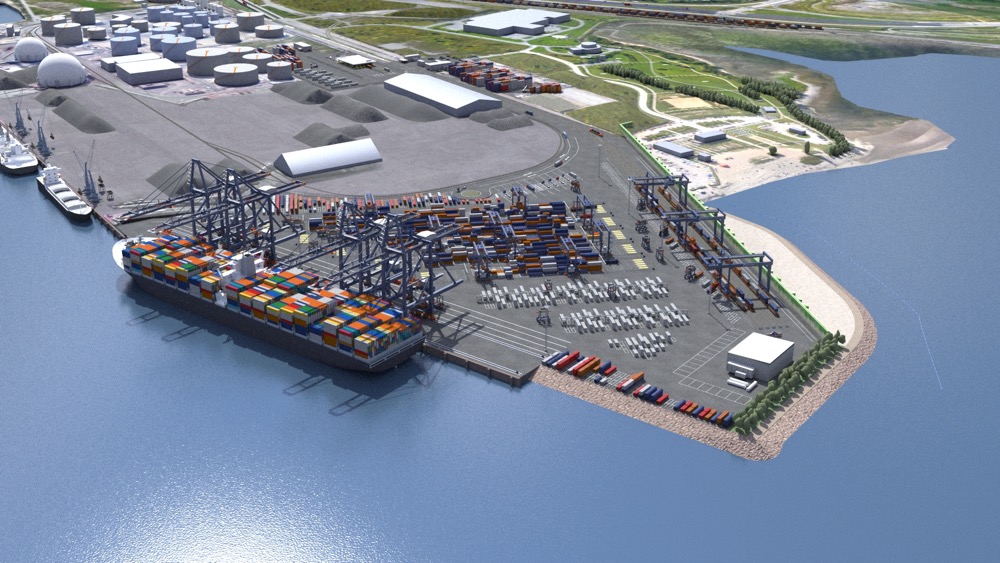By Leo Ryan, Editor
Canada’s federal government has delivered a clear rejection of the Port of Québec‘s ambition to launch a second container gateway on the St. Lawrence River complementing Montreal, affirming that the Laurentia project does not meet the standards of economic development that fully respect the environment.
This decision Tuesday by the Cabinet of the Trudeau Liberal government followed an unfavorable final report several weeks ago by the Impact Assessment Agency of Canada which had concluded that the project in the Beauport sector was likely to cause “direct and significant adverse environmental effects” to fish and fish habitat, air quality and human health, socio-economic conditions and the current use of lands and resources for traditional purposes by Indigenous peoples.
The strongly negative report prompted Jonathan Wilkinson, the federal Minister of the Environment and Climate Change, to refer the issue to the Governor in Council (federal Cabinet) for a final verdict.
The Ottawa decision was announced by Jean-Yves Duclos, President of the Treasury Board and Member of Parliament for Québec, who stated: “ In the 21st century, economic development must take place in respect of the environment.”
After careful deliberation and review of the relevant information, the Governor In Council “determined the potential significant direct and cumulative adverse environmental effects of the Laurentia Project are not justified in the circumstances.”
In this regard, Minister Wilkinson pointed out that the decision just applies to the Laurentia Project and does not prevent the Québec Port Authority from submitting new project proposals and does not preclude potential development. The federal government continues to support the maritime sector and potential proposals would be assessed for their sustainability.
In Québec City, the Legault government expressed its disappointment through Geneviève Guilbault, Minister of Public Security.
And Mario Girard, President and CEO of the Québec Port Authority, said it was regrettable that it was not possible to reconcile the views of the port’s experts with those of the specialists of the assessment agency and the federal department of Fisheries and Oceans. He indicated the port will undertake an in-depth analysis of the impacts of the decision – within the context of ensuring the port’s future economic development.
For his part, transportation consultant Brian Slack was not surprised by the Ottawa thumbs-down. He told La Presse newspaper that while the federal government focussed on the environmental issue, he himself had reservations over the project’s commercial feasibility.
The Laurentia project entails an investment of C$775 million by Hong Kong-based Hutchison Ports, CN and the Port of Québec to build a deep-water terminal conceived principally as a new maritime gateway between North America and Southeast Asia, targeting notably the Midwest market from its strategic location.
Playing a key role piloting the project has been Don Krusel who spearheaded the transformation of Prince Rupert, British Columbia, into the fastest-growing container port in North America in the past decade.
Laurentia was slated to be operational by 2024, with an annual capacity of 700,000 TEUs. CN and Hutchison have pledged to inject over C$500 million in the venture. But discussions with the federal and Québec governments to complete the financing had not yet yielded firm commitments.
Whereas a number of municipalities and businesses in the Province of Québec have voiced support for the project for its economic benefits, local environmental activists and citizen groups have ardently opposed what they see as an unacceptable attack on a unique coastal region and way of life in Québec. In this connection, Alice-Anne Simard, head of Nature Quebec, welcomed the Ottawa decision and suggested that the Port of Quebec should put all its efforts on modernizing its existing installations rather than engaging in major industrial expansion.


